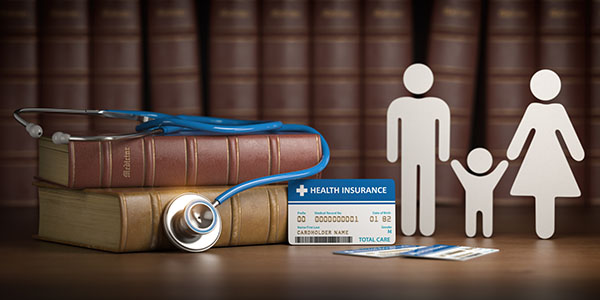Group# 20240
- Employees have the option to enroll in Dental Only coverage.
- Note: If you enroll in both health & dental coverage, dependents must mirror coverage of the member.
For assistance call 800-323-1743
 State of Illinois Department of Central Management Services (CMS) administers the
State Employees Group Insurance Programs. Coverage begins the date of hire. New-hires
must attend the orientation session provided by the Office of Human Resources/ Benefit’s
Unit. Employee(s) may choose to Opt-Out of the State offered health and dental coverage.
State of Illinois Department of Central Management Services (CMS) administers the
State Employees Group Insurance Programs. Coverage begins the date of hire. New-hires
must attend the orientation session provided by the Office of Human Resources/ Benefit’s
Unit. Employee(s) may choose to Opt-Out of the State offered health and dental coverage.
MyBenefits Service Center(844) 251-1777 (toll free) (844) 251- Mon to Fri, 8am to 6pm CST
Benefit Choice Period: May 1 - May 31 Effective: July 1 |
Existing Employees: All your benefits selections from last year automatically rollover with the exception of:
*You must choose these every enrollment period.
New & Existing Employees: To modify or review your selections please visit: mybenefits.illinois.gov
Group# 20240
For assistance call 800-323-1743
(HMO) Health Maintenance Organization
BlueAdvantage HMO (Group Number B06800)
HMO Illinois (Group Number H06800)
Blue Cross Blue Shield OAP (Group Number 263995)
Managed Care Health Plans provide health care through a system of network Providers. Participants must select a Primary Care Physician (PCP) from a network of participating providers. All routine medical care, hospitalization, and referrals for specialized medical care must be coordinated under the direction of your primary care physician. Comprehensive medical benefits are offered at lower Out-of-Pocket cost by utilizing network Providers. There are no annual plan deductibles for medical services; however there is a $150 annual prescription deductible applicable for each plan participant. Only a co-payment applies when the medical services are coordinated through the PCP.
For assistance call 800-868-9520
(PPO) Preferred Provider Organization
Group Number 285658
The Quality Care Health Plan (QCHP) administered by AETNA is a traditional indemnity health plan which offers a comprehensive range of benefits. Under this plan participants can choose any physician or hospital for medical services and any pharmacy for prescription drugs. Plan participants receive enhanced benefits resulting in lower out-of-pocket costs if participant utilizes:
For assistance call 800-628-3323
Basic – Term life insurance coverage is provided automatically at no cost to employees through (CMS) Central Management Services. Active, non-retired Employees are insured for an amount equal to their annual basic salary.
Optional – Additional life Insurance coverage is available up to 8X the basic salary.
Accidental Death & Dismemberment – Coverage for employees is equal to their basic insurance election, or up to the combined amount of their basic & optional insurance.
Spouse & Child – Available at a flat rate.
For assistance call 800-880-6394
Provided at no additional cost to employees and their dependents.. Plan participants are eligible to receive the following benefits:
| Services | Network Provider Benefits | Out-of Network Provider Benefits |
| Spectacle Lenses(single, bifocal and trifocal) | $30 co-payment | $30 allowance for single vision lenses |
| Standard Frames | $30 co-payment (Up to $175 retail frame cost: member responsible for balance over $175) | $80 allowance |
| Contact Lenses (All contact lenses are in lieu of standard frames and spectacle lenses) | $120 allowance | $120 allowance |
| For additional information contact the Plan administrator EyeMed Vision Care. | ||
Central Management Services Group Insurance Division provides free confidential counseling services through the Employees Assistance Program (EAP) administered by Magellan Behavioral Health. Active State Employees and their Dependents participating in the State Employees Group Insurance Program may access this benefit. This includes active employees who opt-out or waived health and dental coverage. The program offers professional guidance and assistance to help individuals going through difficulty times. Please call (833) 955-3400 and access Click here to access the website.
Employees MUST Re-Enroll Each Year
The Illinois Department of Central Management Services (CMS) offers 2 Flexible Spending Accounts Programs:
For assistance call 888-469-3363

Employees MUST Re-Enroll Each Year
An HSA is like a 401(k) for healthcare, yet the HSA tax benefits are far greater. It is a tax-favored, interest-bearing account that active State employees can use to pay for quallfied medical expenses now, or in the future. Active State employees who qualify (see Qualifying for an HSA below), can save or invest the account funds. Paired with the Consumer Driven Health Plan (CDHP), an HSA is a powerful financial tool that gives you more control of your healthcare decisions.
You cannot be enrolled in both an HSA and MCAP Flexible Spending Account.
For assistance call 888-469-3363
Enrollment & Beneficiairies
Provides retirement, disability, death, and survivor benefits to eligible SURS participants and annuitants. Eligible employees are automatically enrolled in SURS when employment begins. You will not pay into Social Security during your employment with a SURS-covered employer, so you are not eligible for Social Security coverage based on this employment.
As a new member of SURS, you must choose a retirement plan within the first 6 months of your employment. Your choice will depend on the types of benefits you wish to receive in the future, as well as the amount of personal involvement you want in determining where and how your contributions are invested. SURS members must choose one of three retirement options: Traditional Plan, Portable Plan or Self-Managed Plan.
Note: If you do not make this decision within six months of your date of hire, you will remain in the Traditional Plan. This default enrollment is also irrevocable.
For assistance call 800-275-7877
Check Balances
Dependents
Employees
Faculty
The Department of Central Management Services/Risk Management Division (CMS) administers the Workers’ Compensation Program for State of Illinois employees. The Early Intervention Program Administered by CareSys is designed to ensure that State employees injured on the job, receive quality medical care and that their recovery is complete. Chicago State University employees experiencing a work related injury that requires medical care should follow the steps listed below:
To file a claim, the necessary forms are required and shall be completed or provided by the: 1) employee, 2) employee’s supervisor, 3) witness, 4) medical documentation, and 5) medical bills, and received by the Office of Human Resources, where the claim will be submitted to CMS for review. If the claim is compensable, CMS will pay the associated medical bills; however, if the claim is reviewed and determined non-compensable, the employee should file the bills with their own health insurance company.